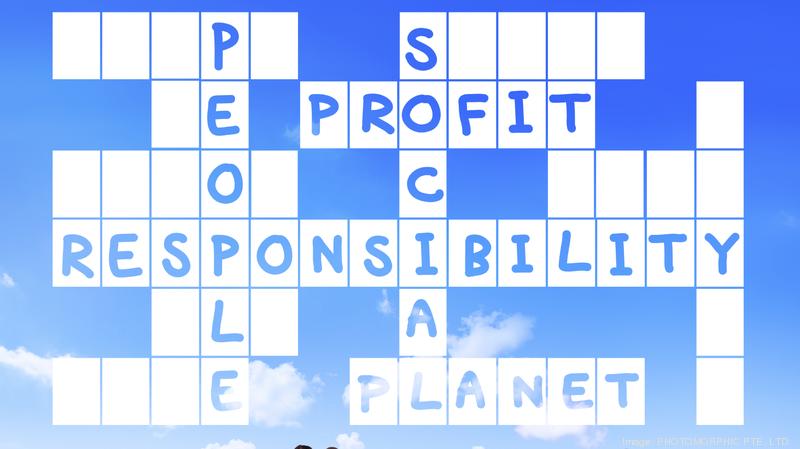Sustainability is becoming increasingly important as the nation develops a diversified economy, adaptable to changing circumstances.
The UAE has highlighted several short-term and long-term sustainability goals by developing national frameworks and guidelines for public and private institutions aimed at encouraging better environmental and sustainability performance. Proactive participation by the Government has allowed for a growing awareness that social well-being and a clean environment carry an importance alongside economic growth.
Abu Dhabi and Dubai are among the leading sustainable cities in the Middle East and care has been taken to ensure that ecological integrity and social well-being are interwoven within the cities’ development. This reveals an understanding that prosperity and sustainability are not trade-offs but drivers of mutual progress.
Sustainability is being reshaped in the Middle East. Events over the year, such as the unanimous adoption of the 2030 Agenda for Sustainable Development by UN member states and the Paris Agreement at COP21, have been supported by the UAE and Oman as this plays a leading role in reversing the effects of climate change.
This is strengthened with the Oman capital market authority (CMA) introducing this year a new draft code that focuses on corporate social responsibility (CSR). From next year, listed companies in Oman must include CSR activities in their annual reports – as well as the Dubai Sustainability Agenda’s four strategic goals: education and knowledge to raise awareness; smart technology and innovation; health and environment; and employment and economic growth, as defined by the Dubai Sustainability Council.
Reporting is a key indicator of how quickly and profoundly sustainability is being addressed by the private and public sectors. Leading companies are increasingly becoming more transparent in their achievements across social, environmental and economic aspects, highlighting areas of further improvement. They are also increasingly using a formalised reporting process that includes stakeholder engagement.
A survey conducted by KPMG on global corporate reporting, Currents of change, found that 73 per cent of companies around the world reported on their corporate responsibility initiatives. This included data from the UAE and Oman, which highlighted that 36 per cent of UAE companies and 37 per cent of Omani companies reported on corporate responsibility. A regional perspective was also compiled by KPMG Lower Gulf with a recently published study, The value of reporting: Highlighting sustainability awareness in the UAE and Oman.
From the regional survey, KPMG found that the leading sectors for corporate reporting (CR) in the UAE were utilities (100 per cent), health care (100 per cent) and oil and gas (75 per cent). It is commendable that the oil and gas sector is keen on reporting its environmental, social and governance (ESG) impacts. That could lead to the growth of reporting in other sectors. Those that were lagging included industrials, manufacturing and metals (25 per cent), construction and materials (11 per cent) and retail (0 per cent).
Globally, the retail sector (58 per cent) lags behind. But it was disappointing that none of the featured companies in that sector reported on CR.
In Oman, the highest reporting sector was mining (100 per cent) and the lowest was industrials, manufacturing and metals, at 19 per cent.
The markets’ desire for transparency is also increasing and companies can no longer hide without triggering suspicion. There are international standards, such as the Global Reporting Initiative (GRI), which enable further transparency in reporting. GRI remains the most popular voluntary guideline in the region with 28 per cent for the UAE and 13 per cent for Oman, while 60 per cent use the GRI framework worldwide.
To strengthen transparency, assurance plays a key role: 42 per cent of global companies have their data independently assured as large companies are keen to increase the credibility of their CR information. But the region’s rate of assurance remains minimal: 25 per cent of companies in the UAE and Oman that opt for third-party assurance have the whole report assured. Two companies in the UAE and Oman have specific indicators assured by an external provider. The remaining companies have a combination of selected chapters and indicators externally assured.
The regional report highlighted the importance of the qualitative aspects of reporting by featuring leading CR reporters: Dewa, du, Aramex, Emirates Transport and NBAD. Seven measures of quality were outlined: strategy; risk and opportunity; materiality; targets and indicators; suppliers; stakeholder engagement; governance of CR transparency and balance.
Based on the survey of profiled companies, KPMG Lower Gulf offered specific recommendations. Benchmarking against international standards will strengthen capacity to adapt to new conditions, expectations and challenges. Awareness among top management and continuous communication on plans with all stakeholders is vital, along with a formal strategy by top management integrating sustainability into medium and long-term plans. It was found that governance is strengthened when the reporters seek properly defined ownership and adopt a step-by-step process with essential projects such as mapping stakeholders, their expectations and identifying related risks and opportunities.
Companies that are just starting their sustainability journey should not shy away from reporting. They need to use the process to engage with stakeholders to further build credibility and trust.
This article was taken from here.
